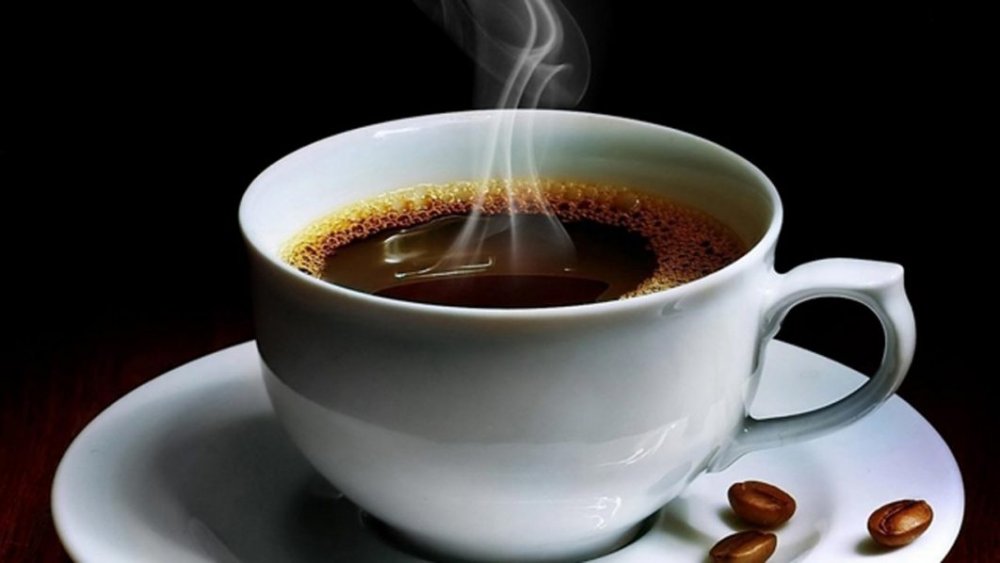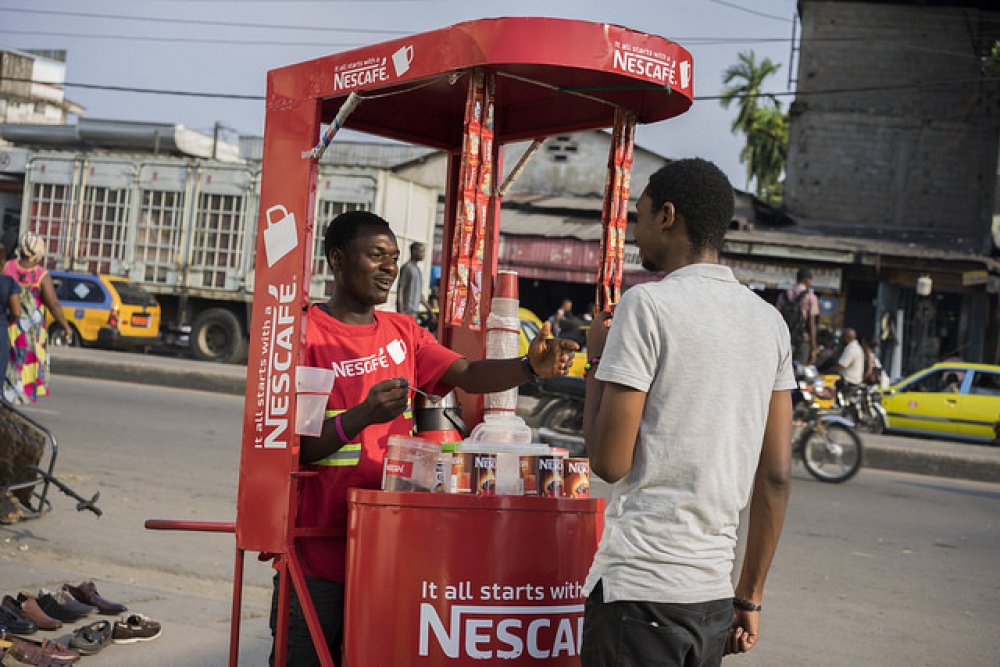Other Pages
- Opinion Poll
- About Us
- Send Your Story
- Contact Us
- Newsletter
- Privacy Policy
- Terms and Conditions

Nigerian coffee lovers might need to start preparing to pay more for their daily Go juice due to the latest sign of how hot commodity markets are affecting the broader global economy.
Coffee bean prices on international markets have spiked as crops in top producer Brazil have been damaged by the worst drought in almost a century, leading to the first supply shortfall in the coffee market in four years.
Colombian exports were delayed earlier this year due to anti-government protests, pushing markets prices even higher.
Brazil is the world’s largest producer and exporter of coffee with Columbia in third place for production and export volumes.
At the start of June, the futures benchmark in New York the high-end coffee bean hit a four-and-a-half-year high of almost $1.70, up almost 70 percent from a year before. Prices have since slipped to about $1.50 a pound – still a marked increase from 2020.
Abnormally dry conditions late in the growing season in Brazil are the main culprits, as Brazil typically produces about one-third of the world's supply of coffee beans.
Rainfall in the agricultural region of Minas Gerais was the lowest on record in the summer months, which stretch from January to April in Brazil. That's normally when coffee plants soak up moisture ahead of the drier winter months when they are harvested. But this year, the rains never came.
Further adding to supply shortages, major shipping and logistics constraints have posed a challenge to farmers and exporters, creating a backlog of coffee inventories shut up in storehouses in producer countries, with the average time for shipping consignments doubling. Shipments that typically take four to six weeks are now taking twice as long to be completed due to a scarcity of containers and ships.
On the international scene, analysts are keeping a close eye on coffee prices and according to the Commodity Futures Trading Commission, financial speculators amassed a big net long position, betting that prices will rise, lending more credence to the anticipated increase.
While coffee consumption in Nigeria is substantially lower when compared to tea and other non-alcoholic beverages, a potential increase in price will have a significant impact on coffee drinkers and may deter demand especially due to inflationary concerns.
It is important to note that Nigeria does not produce enough coffee to meet local taste and demand, much less export to the ever-growing international coffee market. Therefore, the possibility of local consumers being on the receiving end of this price inflation holds firm.
As for local production, Nigeria actually has great, yet untapped potential to become a net exporter of coffee. However, coffee production in the nation has been on a downward spiral for several years running.

A study done by the Raw Materials Research and Development Council (RMRDC), showed that Nigeria imported about N1.5 billion worth of coffee products between 2010 and 2015. Another study showed that in 2019, Nigeria’s coffee import value stood at about $3.87 million.
Due to this substantial reliance on imported coffee, therefore, Nigerian consumers of the commodity are likely to feel the heat of a hike in global prices. Although Nigerians consume more tea and cocoa beverages than coffee, there is a rising demand for the commodity among the nation’s working class and youth. In 2016, Euromonitor International predicted that Nigerians would drink more than 1,000 tons of coffee in the year 2020.
Many Nigerian coffee-drinkers go for their favourite bitter cups of instant coffee that street vendors hawk for N50, but now pay N70 due to high inflation.

Photo: Nigerian street coffee vendor
However, the average Nigerian is still estimated to live on less than $2 per day, meaning that the average coffee drinker from Nigeria currently spends up to 17 percent of his daily earnings on a cup of coffee. While it is true that the caffeine-rich beverage is highly addictive, a further increase in price might lead to consumers seeking cheaper alternatives. Already, the most popular coffee brand, Nescafe, has long adopted Sachetization (producing miniature sachets of instant coffee sold for about N70 a sachet) to reach more consumers whose purchasing power can no longer support the price of the regular packages.
While it is yet to be seen what the cost of a cup of coffee sold off a pushcart would rise to should the anticipated hike in coffee prices come to be, Nigerians may soon need to start warming up to the idea of costlier sachets and containers of coffee.
1 Comment(s)